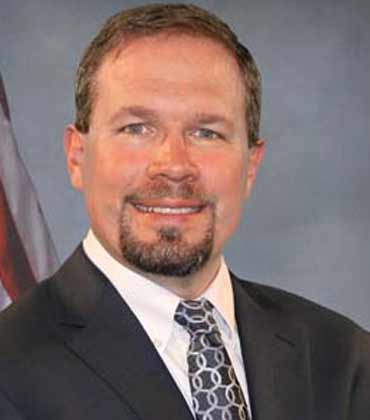THANK YOU FOR SUBSCRIBING
Transitioning from an exclusive focus on preparedness to a more comprehensive approach that incorporates response and recovery, emergency management has drastically evolved since the 1950s. The advancement further accelerated following the terrorist attacks of September 11, 2001, where response and recovery took center stage in helping affected communities cope with the tragedy. Emerging from this, Daniel Craig, after serving as associate administrator for the Federal Emergency Management Agency’s (FEMA) recovery division, established Tidal Basin Group, a company committed to revolutionizing emergency and disaster management with a holistic focus. He recognized that efforts toward normalcy required a rapid response and a proactive strategy to prevent future occurrences and enhance resilience.
IDEA Analytics aims to transform how data is gathered and used in the ever-evolving digital landscape, focusing on public safety agencies. Many individuals in these agencies face a lack of clear guidelines for managing operations, software, and hardware. They inherit a chaotic digital landscape with no documented history of tool acquisition or alignment with organizational goals. This confusion hinders data utilization and decision-making akin to navigating a cluttered space. This is where IDEA Analytics comes in. “Our clients seek our help because they have a vision of what they want to achieve, whether it is implementing body-worn cameras, surveillance systems, or drone programs. We provide them with the knowledge and structure needed to reach their goals. With us, the data they need is right at their fingertips,” says Jessica Herbert, CEO of IDEA Analytics. The company focuses on data acquisition and governance, enabling strategic, long-term technology choices that integrate with public safety agencies’ objectives, resulting in an efficient technology ecosystem. It facilitates seamless change management for the users, addressing emotional and technical aspects during workforce transitions, morale challenges, retirements, and evolving policing interests. IDEA Analytics’ transformative services are delivered through its Building Analytical Capacity Program, which aligns leadership, people, and technology by evaluating key areas like business processes and technology components. It allows organizations to assess their existing systems, identify successes, and explore partnerships with entities such as city or county governments. The programs first phase focuses on enhancing the four fundamental domains crucial for public safety agencies – analytical expectations, personnel skills, data quality, and technology infrastructure. This approach extends beyond leadership to enhance collaboration with municipal partners, fostering a holistic and comprehensive strategy.
IDEA Analytics is a dynamic consulting firm dedicated to revolutionizing public safety agencies through a comprehensive approach to modern technology decisions and data practices. With a focus on bridging leadership, people, and technology, IDEA Analytics empowers organizations to navigate the intricate landscape of public safety by connecting the dots and ensuring a system-wide upgrade.

DeWayne Rose, Director of Emergency Management at the City of West Memphis

Joe Moudy, Director of Emergency Management, City of Lubbock

Stephen Willoughby, Director for Emergency Communications, Preparedness & Response, City of Richmond
Emergency and disaster management are critical components of a society's resilience in unexpected events.
In today’s modern world, humanity is at a precipice, facing challenges from both natural calamities and man-made crises.
Streamlining Public Services with Emerging Technologies
In the face of rising climate-related disasters and unforeseen emergencies, the role of governments in disaster management has never been more crucial. The landscape of disaster response is constantly evolving, driven by technological advancements, policy shifts, and lessons learned from past events. As we delve into the latest developments in this field, it becomes evident that governments worldwide are embracing innovation to enhance their disaster preparedness and response capabilities. One of the most notable advancements in disaster management is the increasing utilization of data analytics and artificial intelligence (AI) technologies. Governments are harnessing the power of big data to analyze historical patterns, predict future disasters, and allocate resources more effectively. AI algorithms can process vast amounts of information from various sources, including satellite imagery, social media feeds, and sensor networks, to provide real-time insights during emergencies. This enables authorities to make data-driven decisions swiftly, leading to more efficient response efforts and better outcomes for affected communities. However, despite these advancements, challenges remain in ensuring effective disaster management at the government level. These include inadequate funding for preparedness and response efforts, bureaucratic barriers that hinder coordination between agencies, and disparities in access to resources and support, particularly for marginalized communities. Addressing these challenges requires a concerted effort from policymakers, stakeholders, and civil society to prioritize disaster resilience and invest in sustainable solutions that benefit all members of society. In this edition, we have featured Tidal Basin. The company’s commitment to community support is exemplified by its involvement in aiding Puerto Rico after Hurricane Maria. In just 72 hours following the disaster, the company mobilized over 900 volunteers and deployed advanced technological solutions, enabling quicker and safer home inspections and effective applicant intake and processing. Their team also trained personnel to start field work and guide the community toward recovery.